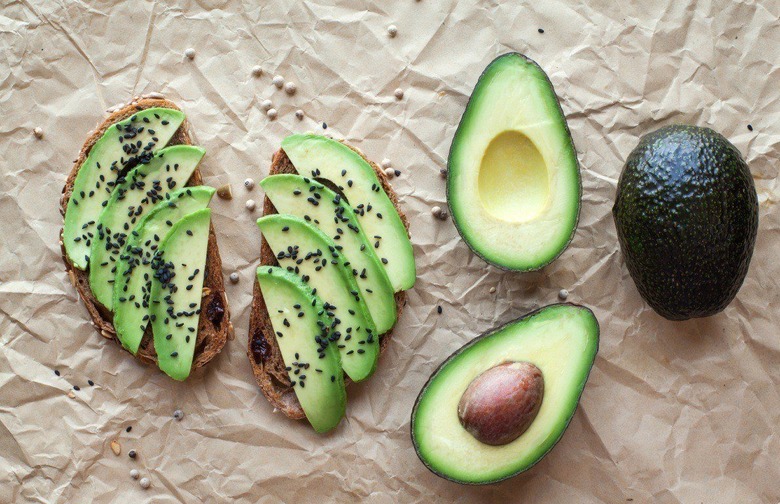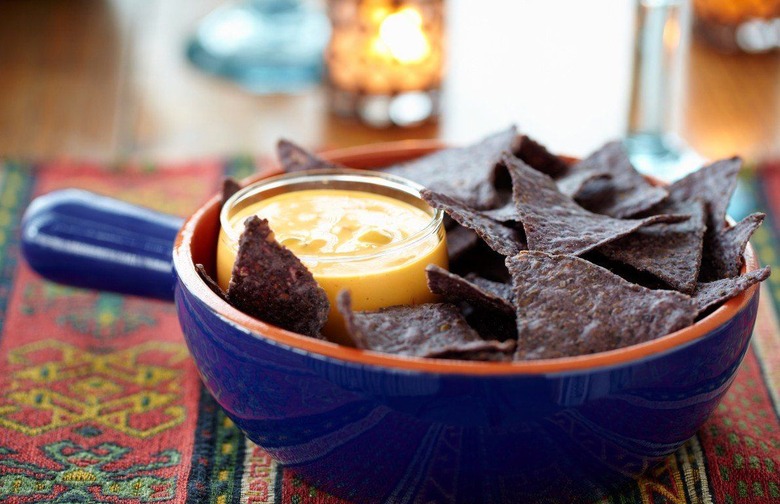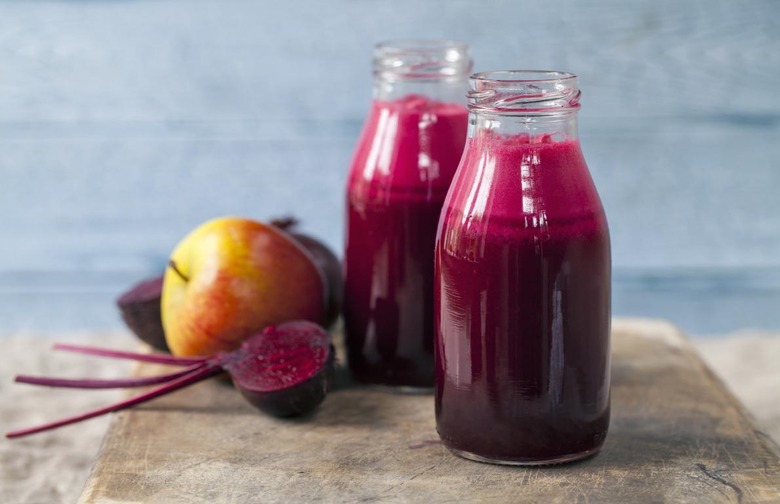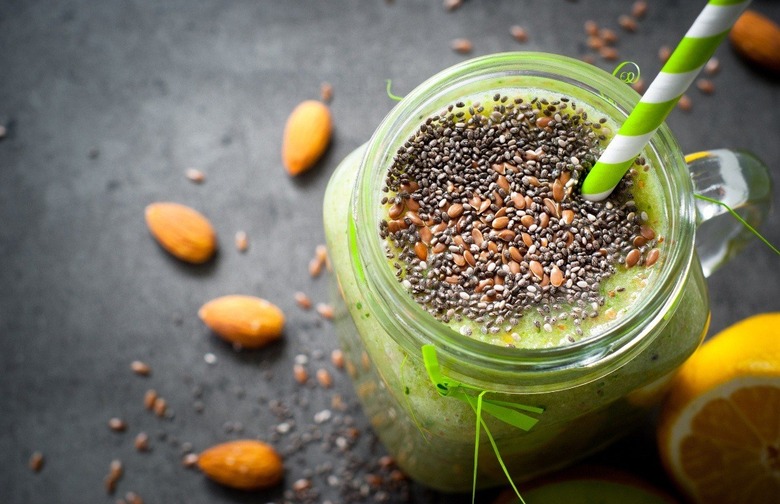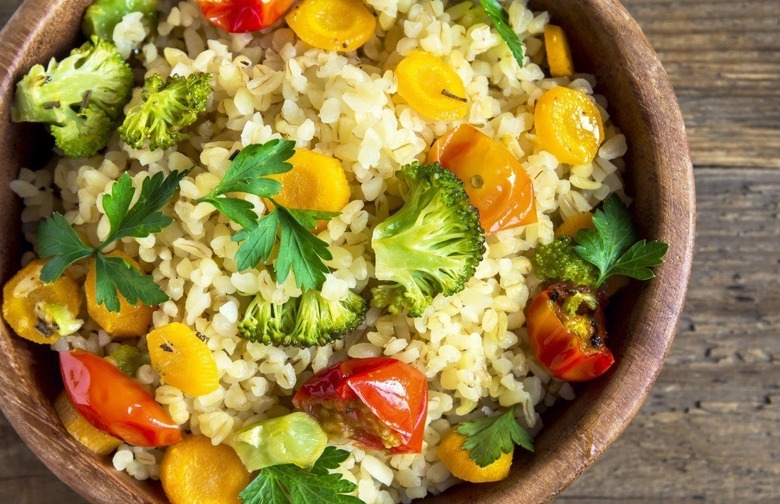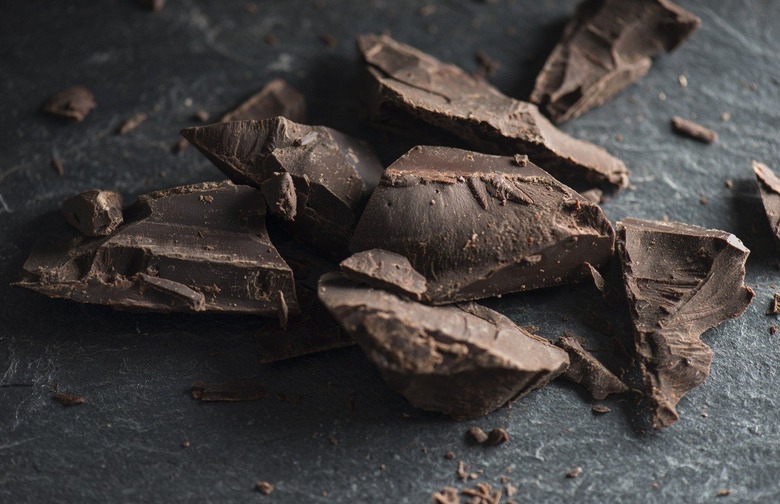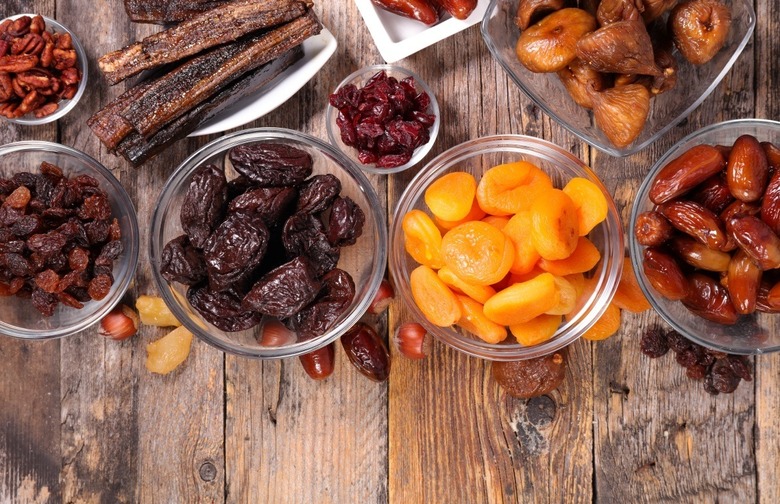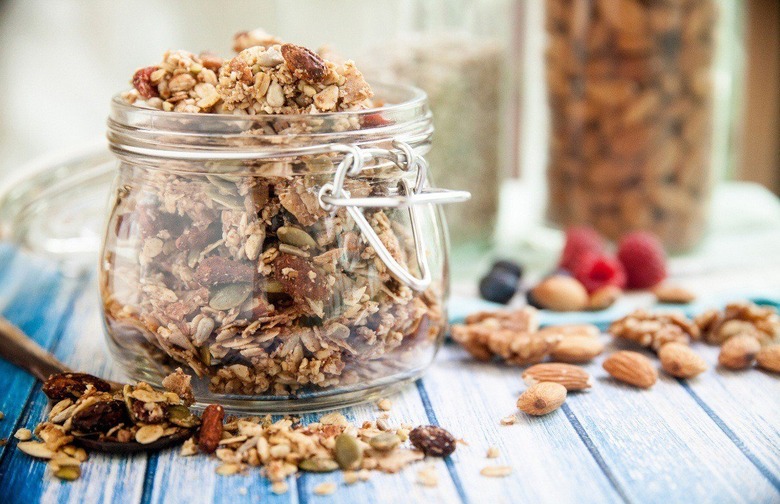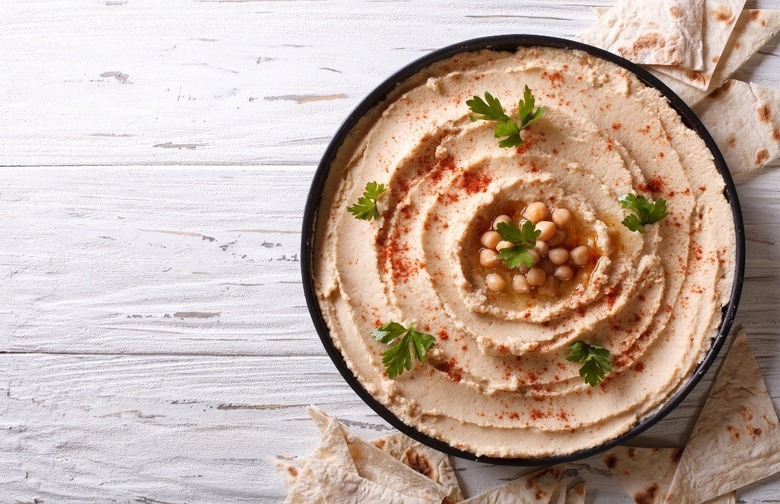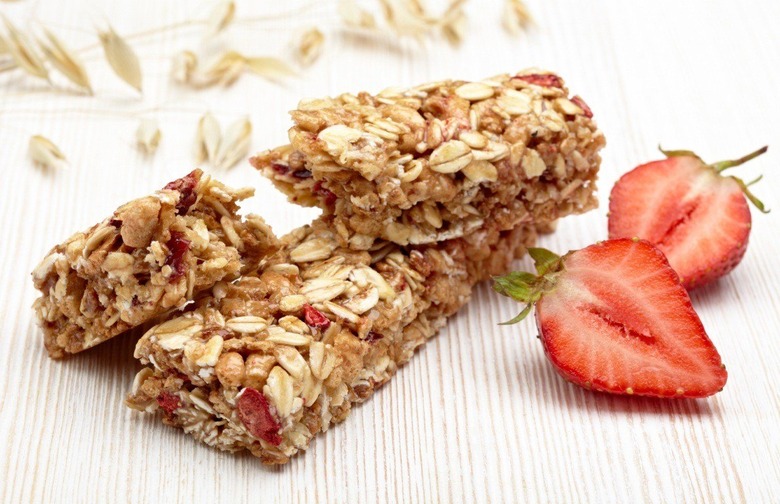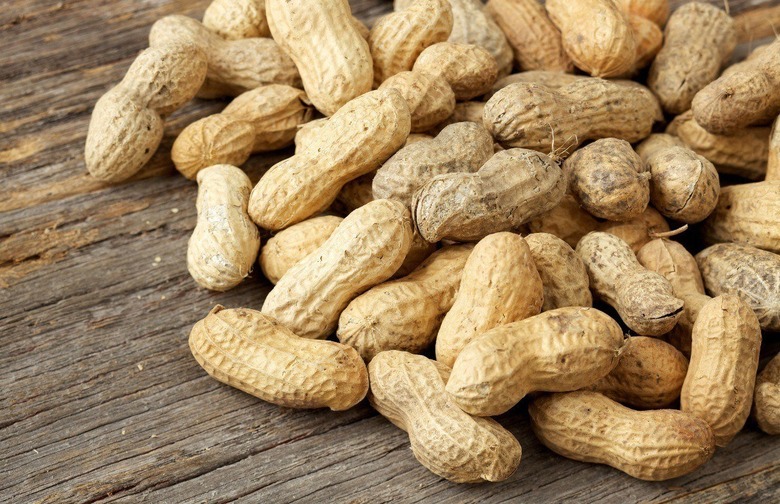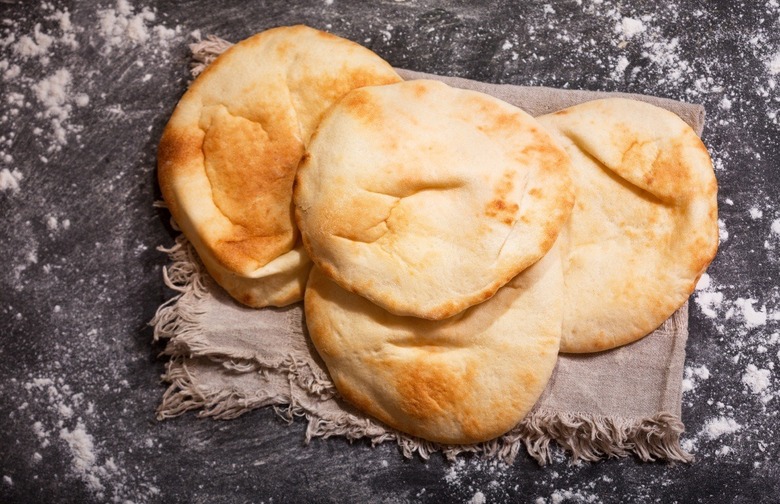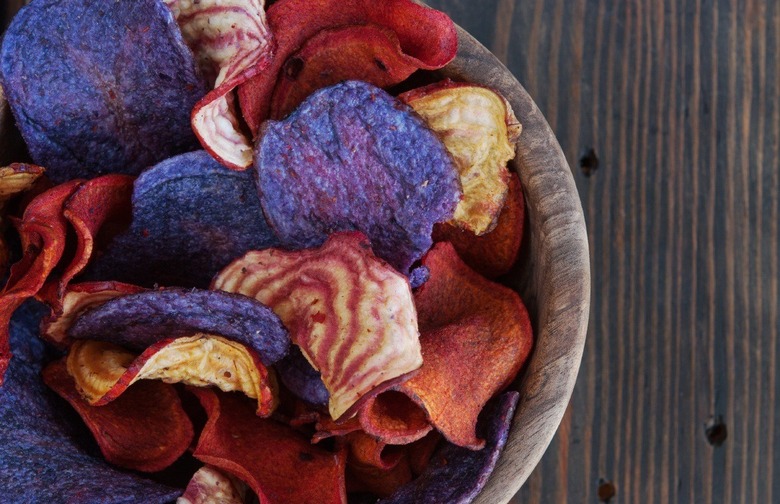13 'Slimming' Foods That Are Actually Calorie Bombs Slideshow
Calories don't tell the whole story when it comes weight gain. Whole foods like fruits and nuts often contain more calories than processed junk food, but this doesn't mean they should be eliminated from your diet. On the contrary: Although twelve ounces of soda contains the same number of calories as a one-ounce serving of shelled peanuts, the soda offers nothing of nutritional value, while the peanuts contain essential phytonutrients and healthy fats that contribute to overall health and wellbeing.
That being said, it can be disconcerting to see that one California avocado has 50 percent more calories than a Snickers bar. But don't freak out, just be aware that even the healthiest foods shouldn't be consumed with reckless abandon.
Avocados
I understand that calling out avocados as anything less than a miracle food is tantamount to a declaration of war, but these irresistible fruits are in fact extremely caloric. One average-sized avocado contains 332 calories, and if you're using chips to scoop up that homemade guacamole appetizer, you could easily wolf down 500 calories before dinner even begins.
Blue Corn Tortilla Chips
The beautiful royal blue kernels of blue corn (also known as Hopi maize) do contain a different set of compounds than those of its traditional counterpart, but when it's heavily processed and fried, these differences diminish. Blue corn tortilla chips are still caloric, with a single eight-ounce bag containing 1,260 calories. Their salty yet alkaline taste makes it easy to unknowingly munch through the whole bag.
Bottled Smoothies and Juices
There's been a monumental shift away from traditional apple, orange, and grape juices towards cold-pressed juices and smoothies. Despite their packaging exteriors, which are usually gilded with whole fruits and vegetables, these beverages are loaded with sugar (albeit natural) and contain very little in the way of nutritional benefits or fiber. Some popular smoothie brands can contain as much as 50 grams of sugar per 16-ounce beverage.
Chia Seeds
These seeds are the darling of the superfood world, but that doesn't mean they aren't high in calories. One ounce of chia seeds (around two tablespoons) is 138 calories, and although this doesn't seem like too many, these calories can add up when you liberally heap spoonfuls of chia seeds into your morning smoothie.
Couscous
It usually sits beneath a rich and aromatic Moroccan chicken stew, but this Middle Eastern staple is really just pasta in disguise. Couscous uses refined flour that is very low in fiber and stripped of its nutrients. Although it's not the worst thing you can put in your body, it's certainly far from the best. Whole-wheat couscous does exist, but you're better off using millet, farro, kamut, or another incredibly healthy whole grain.
Dark Chocolate
Dark chocolate — 70 percent cacao or higher — is considered healthy because of its high concentration of flavonoids and antioxidants and its ability to reduce cholesterol and blood pressure, but dark chocolate still should be treated (and consumed) like a dessert. One bar of dark chocolate (around 5.5-ounces) contains 880 calories and 30 grams of saturated fat. Despite its richness, a little square of dark chocolate after dinner is a much healthier treat than a slice of cake or bowl of ice cream.
Dried Fruit
Oh, dried fruit, I want to love you, but you consistently raise eyebrows with all of that added sugar. A half cup of raisins is over 200 calories, while a half cup of dried blueberries is over 250. If you want your dried fruit fix, go with dried apples; they contain only 104 calories per half a cup.
Granola
Basically oats tossed with honey and dried fruit, granola was synonymous with the organic, doobie-smoking, hippie generation of the 1960s, but it has seriously evolved over the decades. There are 452 calories in a cup of granola, which is a lot for a food that is often munched by the handful. Save some calories and added sugars by making granola at home.
Hummus
A traditional Middle Eastern dish, hummus is commonly made with chickpeas (but it can also be made with beets, lentils, or butternut squash), tahini (sesame paste), lemon juice, cumin, garlic, and olive oil. Although these ingredients aren't unhealthy on their own, the calories can really add up when the dip is paired with chips, pretzels, or pita bread. Avoid the extra calories by using carrot sticks, celery stalks, or cucumber slices.
Nutrition Bars
Many popular protein bars have a nutritional profile that reads like any other junk food, but the way they are packaged and marketed makes them appear to be perfect for the active, athletic, and health-conscious. These bars are usually around 250 calories and can contain up to five teaspoons of sugar. They also aren't especially effective at keeping you full. When shopping for nutrition bars, look for clean labels, and be especially wary of alternative sweeteners, brown rice syrup, or sugar alcohol.
Peanuts
Peanuts aren't actually nuts at all — they're legumes, but unlike beans, peas, or lentils, peanuts are high in calories and fats (albeit healthy fats). A two-ounce serving of shelled peanuts contains 322 calories and almost half a day's worth of total fat. Despite their high calorie count, peanuts are still a healthy snack food: Their antioxidants are linked to cardio-protective benefits, while their phytonutrients may reduce risk of stroke.
Pita Bread
Just because it's associated with the Mediterranean diet doesn't mean pita bread is healthy. Most brands are made with refined white flour, which the body breaks down into sugar almost immediately. A six-inch pita is 165 calories, which isn't terrible (it's about the same as a can of Coca-Cola), but when it's repeatedly dipped into a container of hummus the calories can really rack up.
Veggie Chips
We've grown so accustomed to the idea of "potato chips" as snack food, that it's easy to forget that potatoes are still a vegetable. Veggie chips are just as bad for you as any other thinly-sliced, fried vegetable. A three-ounce serving of traditional veggie chips contains 500 calories, 20 grams of fat, and loads of sodium. These are a fine snack in moderation, but eating a whole bag does not provide you with your daily serving of vegetables. Save some calories and money and make your own veggie chips.

